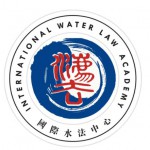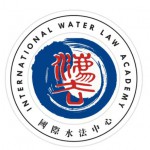Migration and Governance Forum

Migration Governance and its Unintended Implications for International Cooperation
10.00 - 11.00
UNU-CRIS, Grootseminarie, Bruges
Join in-person or online
For decades, repeated interactions on migration matters, in the framework of regional consultative processes (RCPs), have contributed to consolidating the so-called joint management of international migration. Mobilizing decision-makers, stakeholders and practitioners from all countries of migration has been a key objective of these recurrent RCPs, just like socialization. RCPs have also been conducive to two interrelated (and at times unintended) consequences:
- The engagement of non-Western countries in migration talks has triggered a (re)construction of their own national interests. Some of them became aware of their empowered position in the “fight against irregular migration” vis-à-vis the West, especially the EU and its Member States.
- Non-Western countries having a strategic position started to disclose and defend their own representation of what cooperation on migration governance entails, from their point of view.
It is through this double articulation (i.e., empowerment and disclosed representation) that regional consultations on migration governance have evolved since the mid-2000s.
Invariably, this empowerment has generated additional uncertainties to which the EU and its Member States have been obliged to respond. Their responses converged towards the gradual flexibilization of their patterns of cooperation on migration governance with non-EU countries. Actually, heightened uncertainties in their bilateral cooperation on migration governance explain the perceptible drive for informalization in migration governance, given its lower costs.
However, this contribution argues that informalization does not necessarily result from the need to make cooperation on migration governance more responsive to uncertainties. Rather, it may also result from the need to accommodate empowered third countries’ preferences and exigencies in a context marked by strong patterns of interdependence between EU and non-EU countries. Over the last twenty years, the EU and its Member States have witnessed the ability of some non-EU countries to buttress their own credentials in the field of migration governance with a view to defending their preferences and interests, be they connected with migration matters or not.
The reference to reverse diffusion challenges the dichotomy opposing a powerful norm-making Western actor with a norm-recipient non-Western actor, namely between a major power viewed as a socializer in international migration talks, and a socializee. This dichotomy is problematic because it does not interrogate whether and how a public policy, a practice or a norm is transferred from one country to another one and potentially readapted locally. Also, it tends to depoliticise the agency of so-called norm-recipient countries. Their voice is simply dismissed as being “resistant”.
Though understudied in academia, reverse diffusion is perhaps as old as the externalization of migration controls. Empowerment of non-EU countries, reinforced interdependence, reciprocal patterns of socialization, and reverse conditionalities all intersect to delimit a complex international system where diffusion is far from being unidirectional.

Jean-Pierre Cassarino
Senior Research Fellow, College of Europe (Natolin Campus)
Research Associate at the Tunis-based Research Institute on the Contemporary Maghreb
Decentering Research on Governance and International Cooperation
A joint UNU-CRIS - CESSMIR event
11.30 - 13.30
UNU-CRIS, Grootseminarie, Bruges
In-person attendance only
Guided by broadly shared critiques of Western- and Euro-centrism within social sciences, and by insights from post-colonial and critical studies, researchers on international cooperation and governance within a variety of policy fields (e.g., migration and border control, development cooperation and environmental governance) have called for putting ‘the South’ centre stage when advancing understandings of global-local power dynamics, their outcomes and different ways of resistance.
Such approaches that ‘decentre’ the gaze from the Western/Northern actorness in the way policies are transmitted across the globe, led to a proliferation of empirical ‘bottom-up’ accounts of governance projects and a focus on bringing Southern spaces, non-state actors and alternative scripts of governance to the spotlight.
However, the project of decentering and recentering the ‘South’ has been criticized as well, as this tendency could equally result in further exclusion. Central attention is needed for the way the South and the North mutually constitute instead as well as for a historization of Southern contexts and colonial continuities.
There is a need for pluralising the ontological, epistemological and methodological tools to realign the South and the North as loci of co-construction and co-presence. This realignment cannot occur without a reconsideration of the normative role of researchers, academic knowledge and jargon in effecting social and political changes in both Northern and Southern spaces.
This panel aims to contribute to these debates by reflecting on empirical, theoretical, methodological or moral questions of decentering from different disciplinary perspectives and geographical contexts.

Nora El Qadim
Associate Professor of Political Science, University of Paris 8-Vincennes Saint-Denis

Rossella Marino
PhD Fellow, UNU-CRIS / Ghent University

Jan Orbie
Associate Professor at the Department of Political Science, Ghent University

Mary Ann Manahan
PhD Researcher, Ghent University
Upcoming Events
Similar Events
No events found.



